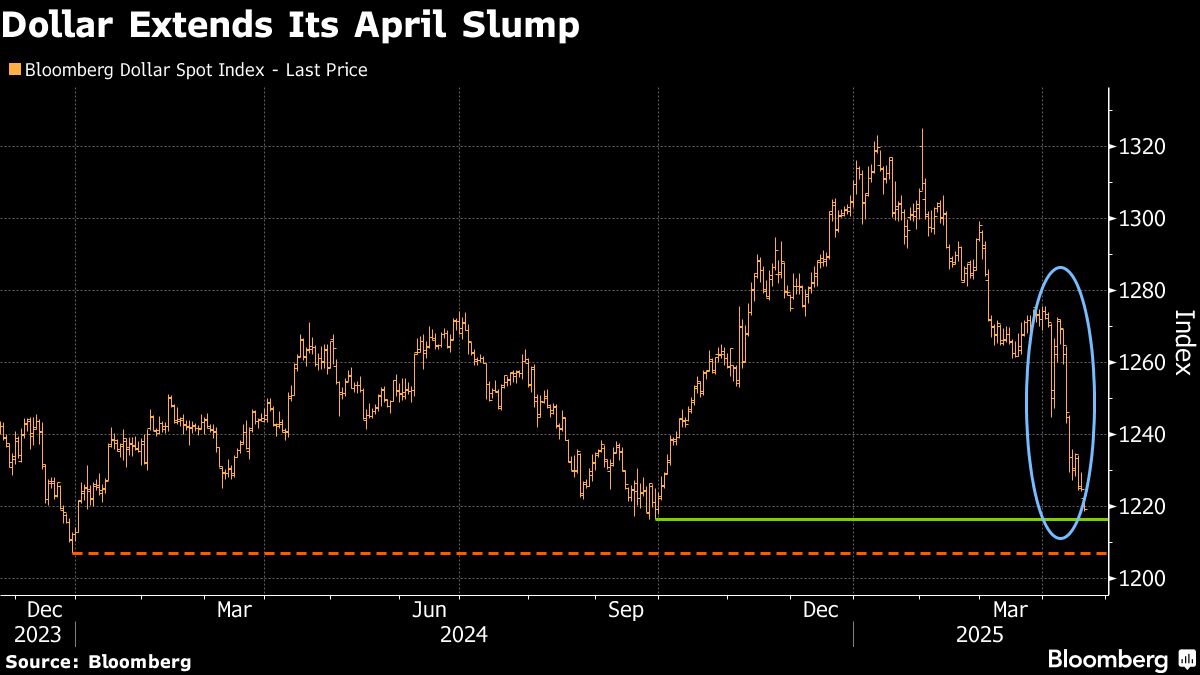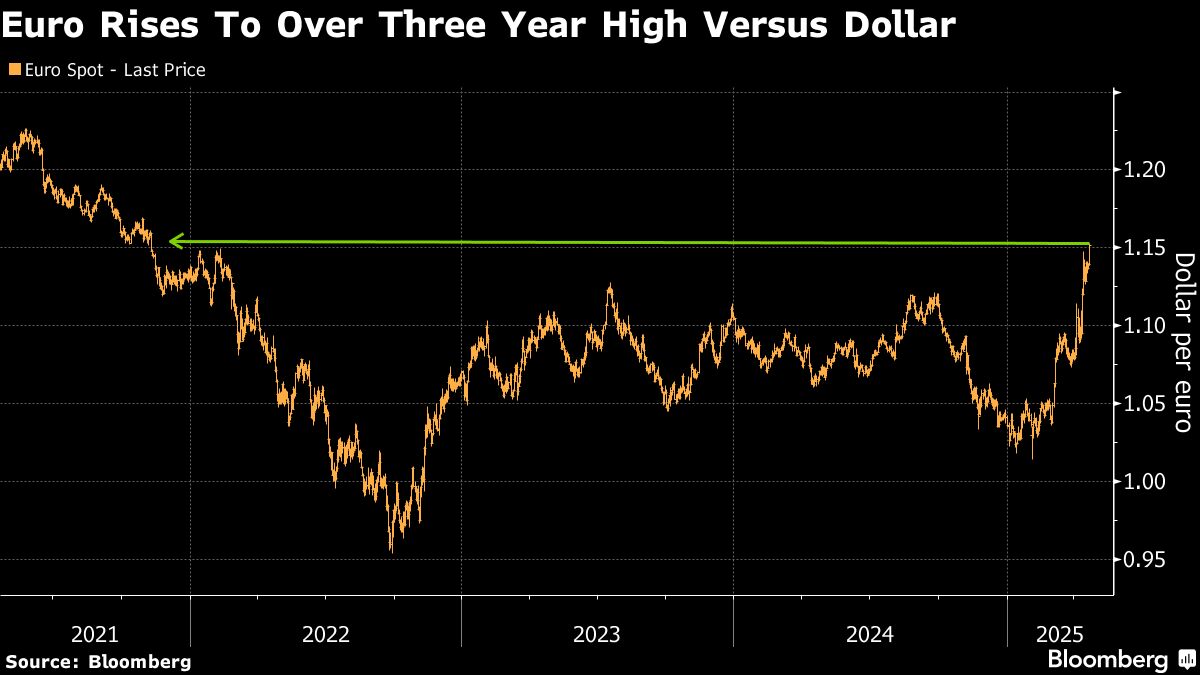
The sell-America trade gathered momentum on Monday on concern President Donald Trump will act on his threat of firing Federal Reserve Chairman Jerome Powell.
The dollar and US stock futures dropped while 10-year Treasury yields climbed as investors weighed the risk of Powell's dismissal and its implications for the world's largest economy. The selling intensified after National Economic Council Director Kevin Hassett said Friday that Trump was studying the matter, after a report said the president was exploring such a move.
While legal scholars say that a president can't dismiss a Fed chair easily, and Powell has said he wouldn't resign if asked by Trump, the speculation is dealing US assets a fresh blow. Washington's aggressive trade tariffs have already fanned fears of a recession and fueled doubts about the status of Treasuries as the haven of choice.
“If the credibility of the Fed is called into question, it could severely erode confidence in the dollar,” said Christopher Wong, strategist at Oversea-Chinese Banking Corp. in Singapore.

Trump has said a cheaper currency would make the nation's products more competitive, adding to the pressure on the dollar.
The Bloomberg Dollar Spot Index fell as much as 1% Monday to the lowest level since December 2023. The yen strengthened to a level last seen in September, while the euro rallied to the highest in more than three years.
The shared currency is now trading at around $1.15, close to the most bullish year-end forecasts from strategists. The yen, at around 140.50 per dollar, is stronger than the median year-end target of 143, Bloomberg data shows.
“We believe dollar weakness will continue,” Win Thin, global head of markets strategy at Brown Brothers Harriman & Co., wrote in a note. “The attack on Fed independence is intensifying. The admission that this is being studied at all should be taken very seriously and very negatively.”
Several hedge funds were among those selling the dollar on Monday after Hassett's remarks, according to traders familiar with the transactions, who asked not to be identified because they aren't authorized to speak publicly.
Hedge funds are now the least bullish on the greenback since October, Commodity Futures Trading Commission aggregated data showed. While headlines on Powell are certainly not helping sentiment, others say the worsening global trade war will likely continue to be the dominant driver on dollar trading.
“Central bank independence is so valuable — not something to take for granted and so difficult to win back if it's ever lost,” said Will Compernolle, a macro strategist at FHN Financial in Chicago. Trump's “threats against Powell are not helping foreign investors' confidence in US assets, but I still think that tariff updates are the main drivers,” he said.

Some said the volatility generated by the headlines may work in Powell's favor.
“As always, Trump is hard to predict, but the relatively quieter US-China tariff headlines last week hint that the markets could be staying Trump's hand,” said Maximillian Lin, a strategist at Canadian Imperial Bank of Commerce. “If that is true, it should presumably extend to Powell's job security as well.”
The selling on Monday wasn't confined to the greenback. US stock futures dropped 1.3% and benchmark 10-year government bond yields climbed seven basis points.
The US curve steepened, with two-year yields dropping amid speculation a removal of the Fed chair would pave the way for more interest-rate cuts.
The extra yield investors demand to own 30-year Treasuries over two-year maturities had increased for nine straight weeks, a streak seen only one other time since Bloomberg began collating the data in 1992.
Meanwhile, warnings from Wall Street equity strategists have piled up as Trump's trade war undermines the outlook for US economic growth and earnings.
Strategists at Citigroup Inc. last week lowered their view on US equities, saying cracks in “US exceptionalism” will persist. They joined the likes of Bank of America Corp. and BlackRock Inc. in turning cold on the stocks in recent days.
Essential Business Intelligence, Continuous LIVE TV, Sharp Market Insights, Practical Personal Finance Advice and Latest Stories — On NDTV Profit.























